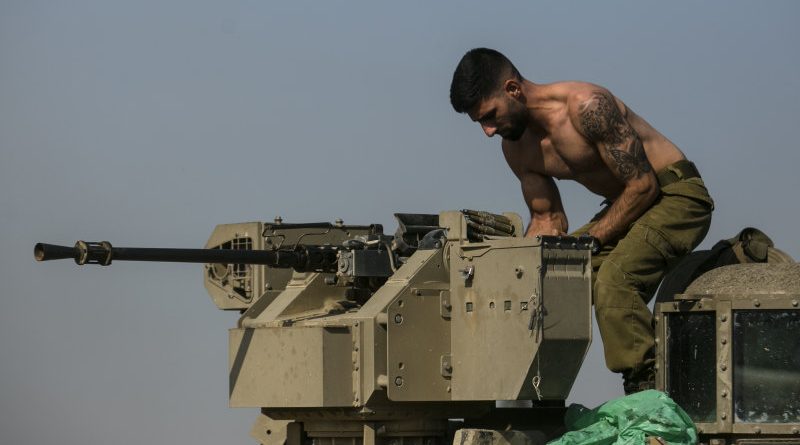US, Israel discuss targeted approach in Gaza, end to widespread offensive
Save articles for later
Add articles to your saved list and come back to them any time.
Tel Aviv: US Defence Secretary Lloyd Austin has discussed ways to scale back major combat operations in Gaza with Israeli leaders but said Washington was not imposing a timetable despite international calls for a ceasefire.
Austin and other US officials have repeatedly expressed concern about the large number of civilian deaths in Gaza, even while underscoring American backing for Israel’s campaign aimed at crushing Hamas. Neither side elaborated on what needed to change on the ground for a shift to more precise operations after weeks of devastating bombardment and a ground offensive.
An Israeli artillery unit fires into the Gaza Strip.Credit: Getty
At a press conference alongside Israeli Defence Minister Yoav Gallant overnight, Austin said, “This is Israel’s operation. I’m not here to dictate timelines or terms.” The US has vetoed calls for a ceasefire at the UN and rushed munitions to Israel.
Israeli Prime Minister Benjamin Netanyahu has insisted that Israel will keep fighting until it ends Hamas’ rule in Gaza, crushes its formidable military capabilities and frees the dozens of hostages still held in Gaza since the deadly October 7 attack inside Israel that ignited the war.
Israeli protesters have demanded the government relaunch talks with Hamas on releasing more hostages after three were mistakenly killed by Israeli troops.
Talks were under way overnight to broker freedom for more hostages, as CIA Director William Burns met in Warsaw with the head of Israel’s Mossad intelligence agency and the prime minister of Qatar, a US official said. It was the first known meeting of the three since the end of a weeklong ceasefire in late November, during which some 100 hostages were freed in exchange for the release of about 240 Palestinians held in Israeli prisons.
More than 100 people were killed in Israeli strikes on residential buildings in northern Gaza on Sunday, a Health Ministry official in the Hamas-run territory said.
The 10-week-old war has killed more than 19,000 Palestinians and transformed much of the north into a moonscape. Some 1.9 million Palestinians – nearly 85 per cent of Gaza’s population – have fled their homes, with most packing into UN-run shelters and tent camps in the southern part of the besieged territory.
American officials have called for targeted operations aimed at killing Hamas leaders, destroying tunnels and rescuing hostages. Those calls came after US President Joe Biden warned that Israel is losing international support because of its “indiscriminate bombing”.
European countries also appear to be losing patience. “Far too many civilians have been killed in Gaza,” EU foreign policy chief Josep Borrell posted on X. “Certainly, we are witnessing an appalling lack of distinction in Israel’s military operation in Gaza.”
An Israeli soldier prepares a gun turret before entering the southern Gaza Strip.Credit: Getty
Human Rights Watch on Monday accused Israel of deliberately starving Gaza’s population — which would be a war crime — pointing to statements by senior Israeli officials expressing the intent to deprive civilians of food, water and fuel or linking the entry of aid to the release of hostages.
At least 110 people were killed in Israel’s bombardment of residential buildings in the urban Jabaliya refugee camp in northern Gaza on Sunday, Munir al-Boursh, a senior Health Ministry official, told Al Jazeera television.
The area has seen heavy fighting in recent days. “No one can retrieve the martyrs or take the wounded to hospitals,” said Amal Radwan, who is staying at a UN shelter in Jabaliya.
Israel and Lebanon’s Hezbollah have traded fire along the border nearly every day since the war began. In the Israeli-occupied West Bank, more than 300 Palestinians have been killed since the start of the war, including four on Monday during an Israeli military raid in the Faraa refugee camp, according to the Palestinian Health Ministry.
This has been the deadliest year for Palestinians in the West Bank since 2005. Most have been killed during military raids, which often ignite gunbattles, or during violent demonstrations.
AP
Most Viewed in World
From our partners
Source: Read Full Article




